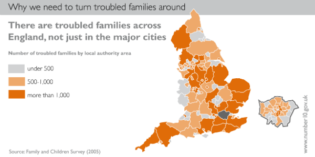Achieving accountable government

How the partisan context of parliamentary votes affects MPs’ party loyalty on free votes
To measure the extent to which MPs make decisions about how to vote out of agreement with a policy or party loyalty, Christopher D. Raymond measured the variation in MPs’ voting behaviour in a series of free votes. He found that the closeness of each parliamentary division affected MPs’ voting behaviour, indicating that loyalty to their party, and the desire for a partisan win, has an effect independently of an MP’s own position and the party whip.

Why the Grieve amendment to the EU Withdrawal Bill is not unconstitutional
On Wednesday, 20 June, the House of Commons will consider again amendments to the EU Withdrawal Bill intended to give Parliament a meaningful vote on the Brexit negotiations, particularly in the case of no deal being agreed. Ben Margulies considers the constitutional implications of these highly contentious proposals.

Out from the shadows: the case for external oversight of UK Special Forces
While the UK government maintains a strict ‘no comment’ policy about the country’s special forces, allied countries, including the US, allow for parliamentary oversight of their covert military operations. Liam Walpole argues that the UK’s approach lacks democratic accountability and prevents proper evaluation of the military effectiveness of special forces. Options for reform include expanding the Intelligence and Security Committee’s remit to cover special forces.

The UK government’s imaginative use of evidence to make policy
It is a frequent complaint by public policy academics that the UK government does not follow evidence-based policy, and instead cherry-picks research to further its political priorities to produce ‘policy-based evidence’. However, writes Paul Cairney, evidence is used to inform policy in more ways than these two opposing categories suggest. As illustrated by family intervention initiatives, the cynical and short-term use of evidence to make policy in one arena can provide cover for more sincere and long-term policymaking in another.

Are citizens good judges of government performance? Evaluations of promise keeping by governing parties
Only a minority of UK citizens think that politicians generally keep their election promises. However, research by Robert Thomson and Heinz Brandenburg indicates that the public are good at evaluating whether politicians have kept specific policy pledges, but this is affected by their pre-existing levels of distrust in politicians and in particular parties.

Collateral damage or a direct hit? Democratic ideals in the age of Trump
How robust are American democratic institutions under Trump’s presidency? Jennifer Earl argues that, even if his actions and lies do not amount to a coordinated effort to undermine democracy, the effect will be to systematically weaken the institutions of US democracy in the long term.

How is Oxfam being held accountable over the Haiti scandal?
In February 2018, The Times newspaper revealed that Oxfam employees had been accused of sexual exploitation in Haiti. This event sparked a series of other reports about misconduct within major charities, which in turn raised serious questions about accountability in the NGO sector. Domenico Carolei looks at whether the systems of accountability that apply to British NGOs and charities working in poor countries are adequate and comprehensive. And he considers the voices still missing: those of the victims.

How the political capture of state owned enterprises is damaging democracy in Central and Eastern Europe
Corruption is still viewed as a key problem in many states across Central and Eastern Europe. Drawing on recent research in Bulgaria, the Czech Republic, and Romania, Clara Volintiru, Bianca Toma and Alexandru Damian highlight the problem of political actors using resources from state owned companies to help win elections. They argue that a widespread lack of accountability in managing public resources is threatening the quality of democracy in these states.




 Democratic Audit's core funding is provided by the Joseph Rowntree Charitable Trust. Additional funding is provided by the London School of Economics.
Democratic Audit's core funding is provided by the Joseph Rowntree Charitable Trust. Additional funding is provided by the London School of Economics.